NGC 3314: When Galaxies Overlap : Why Doesn’t The Nearby Galaxy Create A Gravitational Lensing Effect

NGC 3314: When Galaxies Overlap : Why doesn’t the nearby galaxy create a gravitational lensing effect on the background galaxy? It does, but since both galaxies are so nearby, the angular shift is much smaller than the angular sizes of the galaxies themselves. The featured Hubble image of NGC 3314 shows two large spiral galaxies which happen to line up exactly. The foreground spiral NGC 3314a appears nearly face-on with its pinwheel shape defined by young bright star clusters. Against the glow of the background galaxy NGC 3314b, though, dark swirling lanes of interstellar dust can also be seen tracing the nearer spiral’s structure. Both galaxies appear on the edge of the Hydra Cluster of Galaxies, a cluster that is about 200 million light years away. Gravitational lens distortions are much easier to see when the lensing galaxy is smaller and further away. Then, the background galaxy may even be distorted into a ring around the nearer. Fast gravitational lens flashes due to stars in the foreground galaxy momentarily magnifying the light from stars in the background galaxy might one day be visible in future observing campaigns with high-resolution telescopes. via NASA
More Posts from Epic-flight and Others

O_o When we peer deep into space, we don’t expect to find something staring back at us…
This galactic ghoul, captured by our Hubble Space Telescope, is actually a titanic head-on collision between two galaxies. Each “eye” is the bright core of a galaxy, one of which slammed into another. The outline of the face is a ring of young blue stars. Other clumps of new stars form a nose and mouth.
Although galaxy collisions are common most of them are not head-on smashups like this Arp-Madore system. Get spooked & find out what lies inside this ghostly apparition, here.
Make sure to follow us on Tumblr for your regular dose of space: http://nasa.tumblr.com
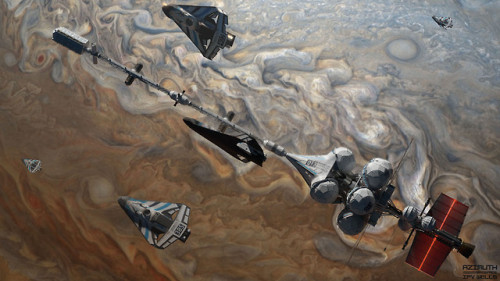
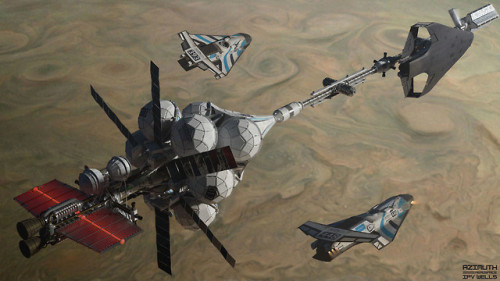
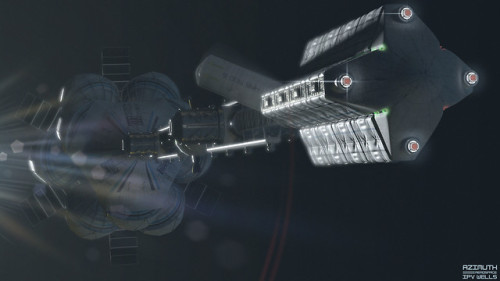

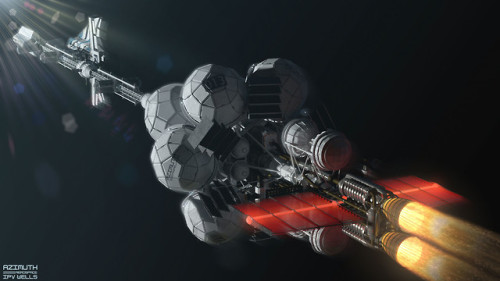
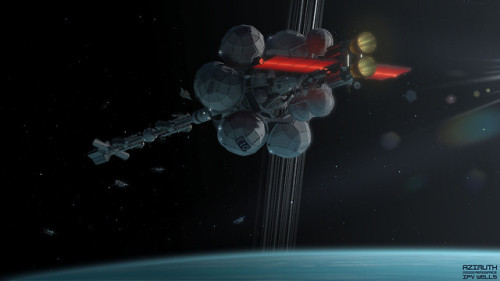

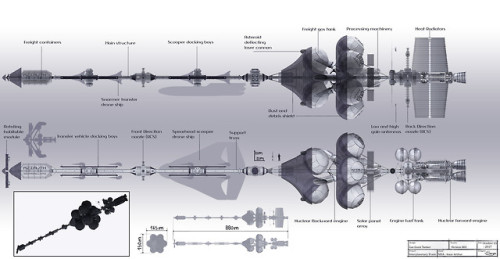
Wells-class interplanetary vehicle - Sergio Botero
“By the dawn of the XXII century, humanity’s thirst for Deuterium and Anti-Deuterium became so immense that companies began harvesting raw Hydrogen from the gas and ice giant planets. For that purpose, thousands of interplanetary spaceship tankers that work as refineries were built in order to transport the collected gas from the atmospheres of those planets to space stations over Earth, the Moon and other locations in the Solar System.“

Pulling Away.
You can get this GIF as a phone wallpaper for free through the Zedge app.
You can also get this GIF as a looping 1080p video if you support me on Patreon.
Twitter / Instagram / Shop / Gumroad / Patreon / Zedge
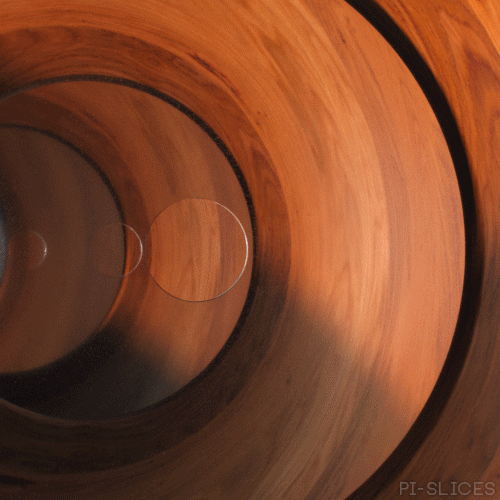
Circular Windows - 221006

Glacial - 220919
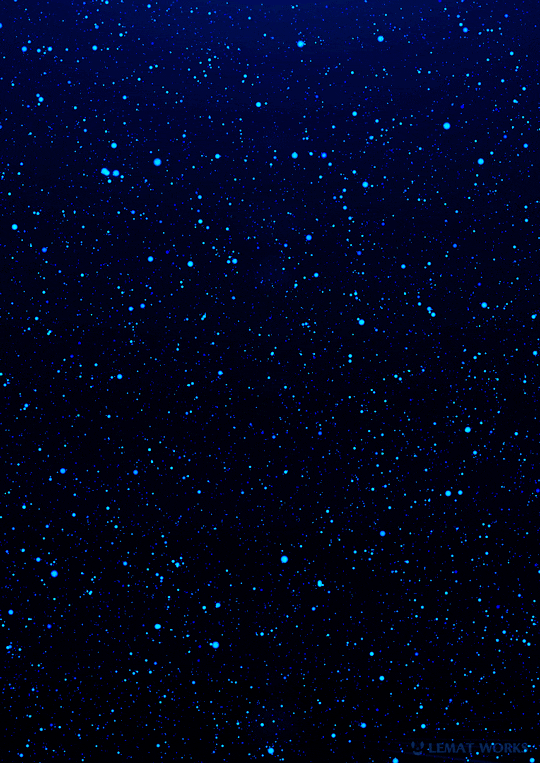
Produced by LEMAT WORKS
🔵 Deep Blue Purple Red Green Orange/ Twinkle Night3 2 17 27 29 / Prism Ocean / instagram / Behance (High Resolution) 🔵

‘uplink’

Approaching Innsbruck

A Colorful Moon The Moon is normally seen in subtle shades of grey or yellow. But small, measurable color differences have been greatly exaggerated to make this telescopic, multicolored, moonscape captured during the Moon’s full phase. The different colors are recognized to correspond to real differences in the chemical makeup of the lunar surface. Blue hues reveal titanium rich areas while orange and purple colors show regions relatively poor in titanium and iron. The familiar Sea of Tranquility, or Mare Tranquillitatis, is the blue area in the upper right corner of the frame. White lines radiate across the orange-hued southern lunar highlands from 85 kilometer wide ray crater Tycho at bottom left. Above it, darker rays from crater Copernicus extend into the Sea of Rains (Mare Imbrium) at the upper left. Calibrated by rock samples from the Apollo missions, similar multicolor images from spacecraft have been used to explore the Moon’s global surface composition. Image Credit & Copyright: László Francsics
-
 dew-and-the-rope reblogged this · 1 year ago
dew-and-the-rope reblogged this · 1 year ago -
 dew-and-the-rope liked this · 1 year ago
dew-and-the-rope liked this · 1 year ago -
 starryfull13 reblogged this · 1 year ago
starryfull13 reblogged this · 1 year ago -
 tethys-the-aquatic-sea-godness reblogged this · 1 year ago
tethys-the-aquatic-sea-godness reblogged this · 1 year ago -
 tethys-the-aquatic-sea-godness liked this · 1 year ago
tethys-the-aquatic-sea-godness liked this · 1 year ago -
 martingarperxsblog liked this · 2 years ago
martingarperxsblog liked this · 2 years ago -
 prayandcoolyouranxiety reblogged this · 2 years ago
prayandcoolyouranxiety reblogged this · 2 years ago -
 waeirfaahl liked this · 2 years ago
waeirfaahl liked this · 2 years ago -
 marcsilvasblog liked this · 2 years ago
marcsilvasblog liked this · 2 years ago -
 stclhjerte liked this · 2 years ago
stclhjerte liked this · 2 years ago -
 lillyli-74 liked this · 2 years ago
lillyli-74 liked this · 2 years ago -
 33ri3 liked this · 2 years ago
33ri3 liked this · 2 years ago -
 epic-flight reblogged this · 2 years ago
epic-flight reblogged this · 2 years ago -
 midnight-dweller reblogged this · 2 years ago
midnight-dweller reblogged this · 2 years ago -
 roberto-santander liked this · 2 years ago
roberto-santander liked this · 2 years ago -
 astronofeminist reblogged this · 2 years ago
astronofeminist reblogged this · 2 years ago -
 ashbabbby liked this · 2 years ago
ashbabbby liked this · 2 years ago -
 fandominfinity liked this · 2 years ago
fandominfinity liked this · 2 years ago -
 calma-deixa-fluir-blog reblogged this · 2 years ago
calma-deixa-fluir-blog reblogged this · 2 years ago -
 astronofeminist liked this · 2 years ago
astronofeminist liked this · 2 years ago -
 small-cog reblogged this · 2 years ago
small-cog reblogged this · 2 years ago -
 be-lie-vers liked this · 2 years ago
be-lie-vers liked this · 2 years ago -
 dreamilycertainpuppy reblogged this · 2 years ago
dreamilycertainpuppy reblogged this · 2 years ago -
 dreamilycertainpuppy liked this · 2 years ago
dreamilycertainpuppy liked this · 2 years ago -
 alltheshenenigans liked this · 2 years ago
alltheshenenigans liked this · 2 years ago -
 kawo1 liked this · 2 years ago
kawo1 liked this · 2 years ago -
 blurbitch liked this · 2 years ago
blurbitch liked this · 2 years ago -
 universalci1l liked this · 2 years ago
universalci1l liked this · 2 years ago -
 totalawareness reblogged this · 2 years ago
totalawareness reblogged this · 2 years ago -
 totalawareness liked this · 2 years ago
totalawareness liked this · 2 years ago -
 tacostrufflestragedies liked this · 2 years ago
tacostrufflestragedies liked this · 2 years ago -
 rsfz-rennane liked this · 2 years ago
rsfz-rennane liked this · 2 years ago -
 lolamay2017 liked this · 2 years ago
lolamay2017 liked this · 2 years ago -
 5hiny8laze2ombie liked this · 2 years ago
5hiny8laze2ombie liked this · 2 years ago -
 spastikiarr liked this · 2 years ago
spastikiarr liked this · 2 years ago

